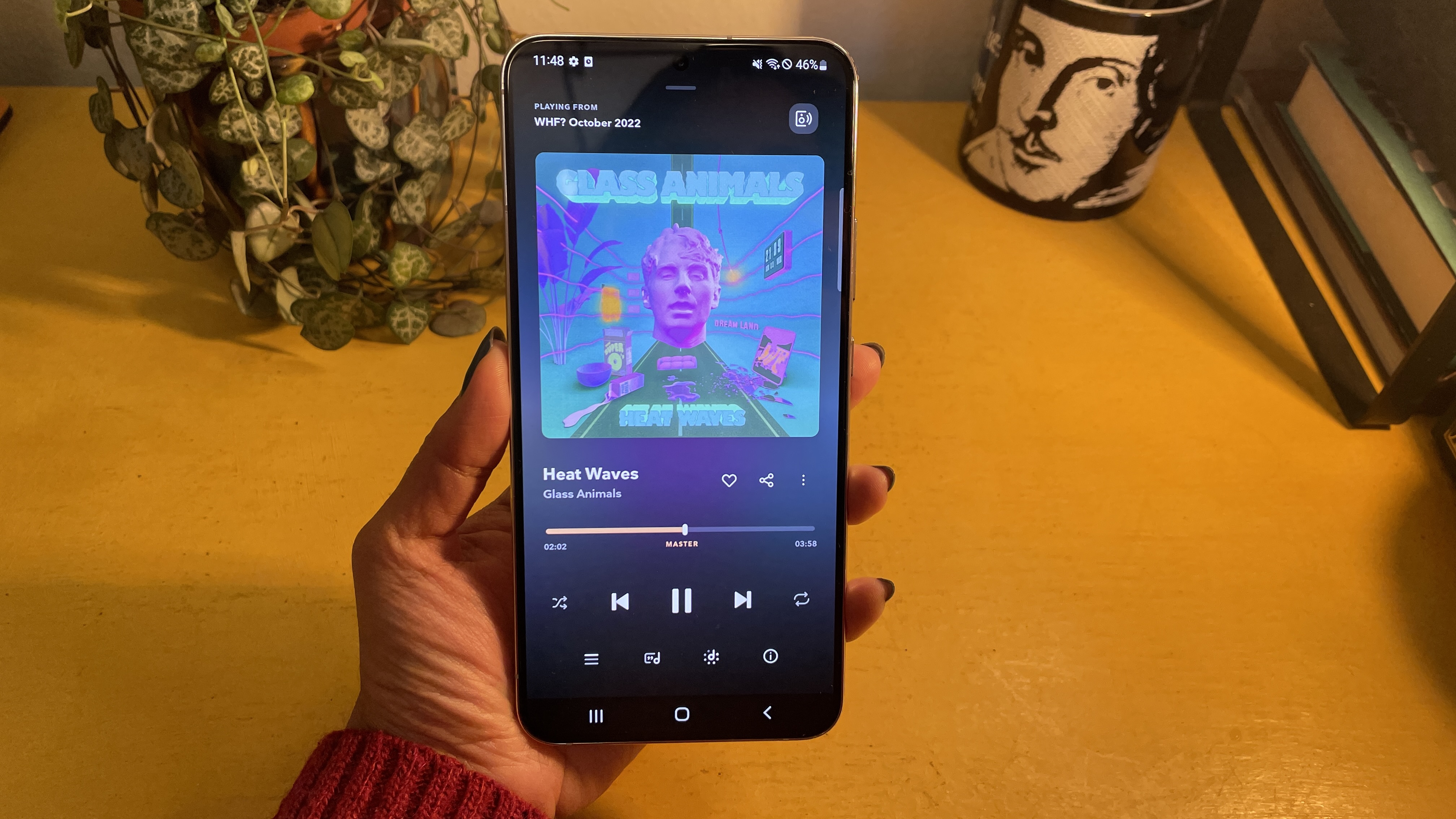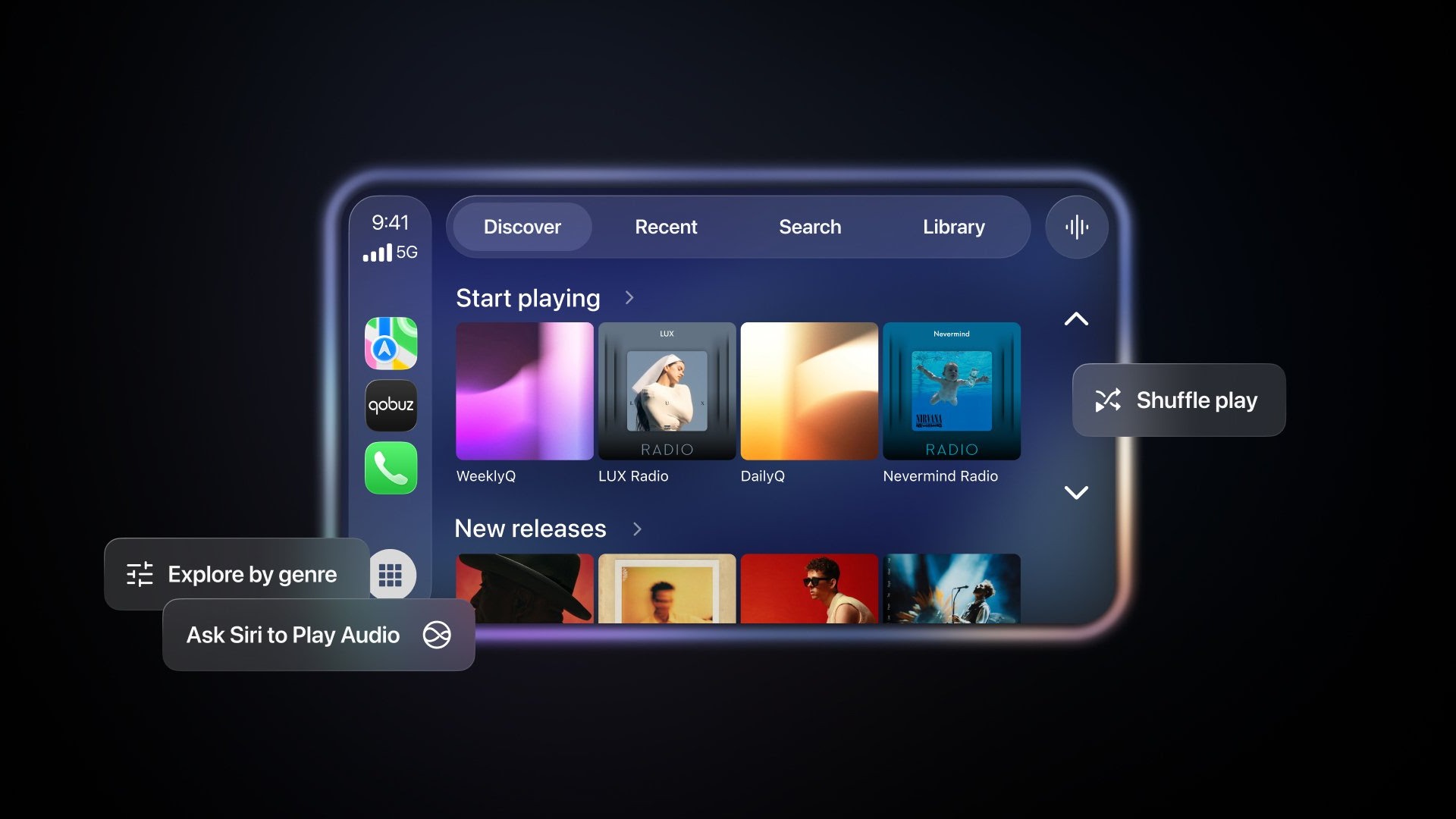Forget the Plus and Ultra, I want a music-focused Galaxy S23 – here's why
Samsung needs to take audio seriously if it wants to beat the Apple iPhone

The latest hi-fi, home cinema and tech news, reviews, buying advice and deals, direct to your inbox.
You are now subscribed
Your newsletter sign-up was successful
Earlier this week, after months of rumours, Samsung finally confirmed it will be hosting its Unpacked event on 1st February.
And while the audiophile readers on this page may meet the news with an unceremonious shrug, with the budget Galaxy Buds 3 earbuds being the only relevant release expected at the event, for most gadget aficionados it's a big deal for one key reason: Samsung’s highly anticipated Galaxy S23 smartphone family of phones is expected to make its debut.
To catch people up who don’t religiously follow the phone market, the Galaxy S23 is expected to be one of the biggest rivals to Apple’s iPhone this year and a direct follow-on from the Galaxy S22, which we gave five stars after thorough testing last year.
And if the pre-release rumours are to be believed, the S23 will be a big step forward featuring a few key changes, the biggest of which are expected to be upgrades to the phone’s zoom capabilities, extended battery life and a move to use Qualcomm’s Snapdragon silicon in every market.
To be clear, as a tech fan, these upgrades aren’t to be sniffed at. The Ultra version of the S22 we reviewed last year offered the best zoom photography powers we’ve seen on a smartphone.
A move to use a flagship Snapdragon CPU should also – based on our time using the Exynos variants Samsung shipped to the UK – pave the way for better battery life and a faster general performance. This has certainly been the case with past Samsung phones I’ve tested, with the Snapdragon models of the Galaxy S22, Galaxy S21 and Galaxy S20 sold in the US all offering superior battery life to the UK Exynos-powered equivalents (Exynos is Samsung's own line of mobile CPUs).
But for me, there’s one gaping hole Samsung needs to plug if it wants to get me interested in the Galaxy S23, based on the pre-release industry rumblings I’ve heard so far.
The latest hi-fi, home cinema and tech news, reviews, buying advice and deals, direct to your inbox.
Specifically, from what I’ve heard, Samsung’s not got any plans to upgrade the audio performance of its Galaxy phones.
This may sound like a small quibble but, for me – an avid Tidal subscriber who due to my budget can’t afford to invest in a dedicated hi-res unit such as the Astell & Kern A&norma SR25 MKII that's sitting in the top spot in our best portable music player guide – it’s a big deal.
All too often I’m forced to use my phone as my primary music player and, having reviewed handsets for over a decade, I can safely tell you that audio quality varies massively between devices.
Last year, this was clearly showcased by the S22 Ultra. Using the phone for over a week just before Christmas I fell in love with the device’s camera, wonderfully accurate screen and solid gaming performance. But after my test period finished I couldn’t wait to swap my sim card out to a different handset because the audio quality simply wasn’t as good as that of competing flagships.
Listening to a variety of tracks on Apple Music, Tidal and Spotify, the S23 Ultra failed to deliver the same cohesion and clarity I experienced using the Apple iPhone 13 and Sony Xperia 1 IV.
This is why I was really hoping that this year Samsung would focus on improving its flagship handset’s audio and would finally deliver a device I could comfortably use long-term.
In an ideal world, for me, personally, this would take the shape of a music-focused variant of the S23 to sit alongside the base model and more expensive Plus and Ultra models Samsung’s expected to launch on 1st Feb.
In my head, this would be a modern version of the Onkyo Grandbeat from 2017, which was basically a portable music player with its own built-in DAC and a specialist circuit design focused on audio quality. Or the five-star LG G5 with Hi-Fi Plus DAC we tested back in 2016.
But truth be told I’d settle for a more modest improvement to the line in general, and that really should be an easy win for Samsung considering how much R&D budget it has and the wealth of audio companies it owns, which includes the Harman Kardon group, home to the likes of AKG, JBL and Arcam.
MORE:
Check out our best wireless earbuds buyers' guide
Read our in-depth best smartphones guide
Upgrade your phone audio using our best headphone amplifier guide

Alastair is What Hi-Fi?’s editor in chief. He has well over a decade’s experience as a journalist working in both B2C and B2B press. During this time he’s covered everything from the launch of the first Amazon Echo to government cyber security policy. Prior to joining What Hi-Fi? he served as Trusted Reviews’ editor-in-chief. Outside of tech, he has a Masters from King’s College London in Ethics and the Philosophy of Religion, is an enthusiastic, but untalented, guitar player and runs a webcomic in his spare time.
